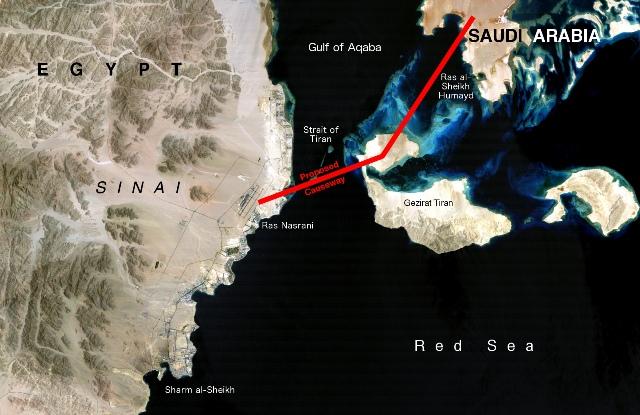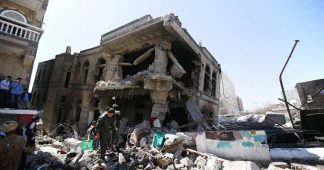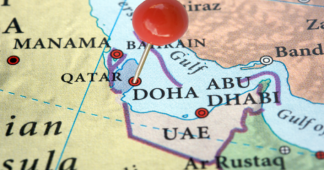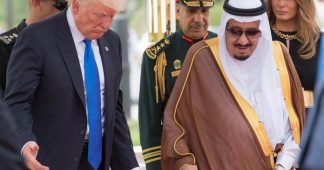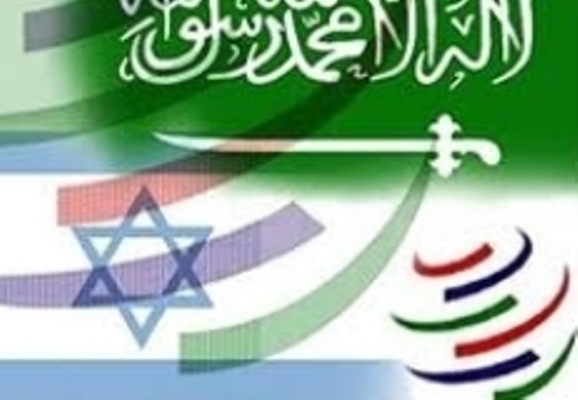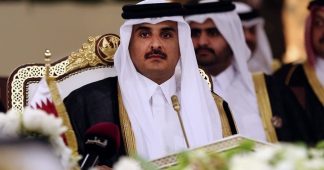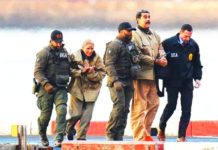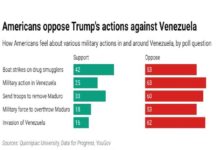This is the biggest threat in the history of the Turkish Republic
By İbrahim Karagül
We are facing “a new situation” that will turn enemies into friends, and friends into enemies. Today, the cards in the region are being reshuffled, fronts are being reformed and alliances are being reshaped.
A brand new “coalition,” brand new “axis” is forming in the Middle East. Just like it happened right after the Arab Spring, this is a coalition that completely excludes Turkey, tries to keep it away from the region, tries to push it out of Syria and prioritizes severing its ties with the Arab world.
We actually sensed this with the Gulf crisis that targeted Qatar. This is a coalition led by the United Arab Emirates (UAE), Egypt and Israel, which uses operational hitmen like Muhammad Dahlan.
The Sadr quake, surprising outbursts
The most radical outburst of the axis in question, which has changing the Palestinian administration on the agenda by getting close to Hamas, was Iraqi Shiite leader Muqtada Sadr’s invitation to Saudi Arabia. Immediately after returning from Riyadh, Sadr banned slogans and posters targeting Saudi Arabia in areas under his influence and declared Riyadh “the father of the region.”
Efforts are made to give prominence to the Arab identity through Sadr, who was invited to the UAE immediately after the visit, and Iran’s influence over Iraq is tried to be severed through this identity. While this was happening, the Riyadh administration made surprising outbursts to end the war in Yemen, to open the border gate with Iraq – which was closed since the 1991 Gulf War – to open a consulate in Basra, and to get close with Baghdad.
The Arab identity not the sectarian identity, gained prominence
Surely these were quite surprising steps taken in accordance with the priorities of the new coalition. The tension between Iran and Saudi Arabia seems to be moving away from the sectarian identity and reshaping through the Arab-Persian identity. The Saudi Arabia-Egypt-UAE discovered the Arab identity and were now presenting this through Sadr. We are facing new and surprising situations that we are not familiar with. I guess the next steps taken by the “axis” will continue to surprise us.
There is no doubt that we must defend and encourage rapport between regional countries. We must do whatever is necessary to diminish the areas of tension/conflict in our region. As a matter of fact, we must make efforts to alleviate the Iranian-Saudi crisis.
We must at once find ways to escape the sectarian crisis, which has the potential to turn the entire region into ruins. While the steps of the new “axis” is felt in Iraq and Yemen, this, at first glance, is not a conflict; it presents itself in the form of rapport.
US, UK, Israel mind behind it all
But is that really the case? Should we read into these developments with so much optimism? Do the developments in question indicate a regional rapport or the opening of a very tough and new front?
I personally think a very dangerous wind is approaching. There is a greater plan behind Riyadh and the UAE’s maneuver. There is a U.S., a U.K., an Israeli mind behind it. There is a regional project. There is a finely processed plan to render U.S. plans dominant in Syria, to push Iran out of the south and to get Turkey out of Syria.
Turkey will be openly targeted
Surely Iran is the primary target of this “axis.” There are more superior plans like breaking Iranian influence in Iraq, pulling Iraq into the axis through the Arab identity, closing Tehran’s doors to the West, taking full control over Syria with the U.S. and Israel, turning the terror corridor formed in northern Syria into a reality and cutting off all of Turkey’s ties with the Arab world.
These plans exceed both Saudi Arabia and the UAE. We are face-to-face with U.S.-U.K.-Israel mapping efforts. In other words, the primary target of the “axis” is Iran, then it is Turkey.
Its extensions in Turkey and the 2019 scenario
Last week I tried to explain under the headline, “The 2019 coalition,” what the extensions of the “axis” in Turkey might be before 2019. A scenario will be played out in Turkey within the scope of the axis in question through the cryptos of the Kurdistan Workers’ Party (PKK), its Syrian affiliate the Democratic Union Party (PYD), the Fetullah Terror Organization (FETÖ) leftovers, pro-NATO circles and conservative oppositions.
But right now, we face greater threats. The map formed in northern Syria will soon be complete. Once that map is complete, there won’t be anything left for Turkey to do. Then, we will have no option left but to sit and guess how the war will be spread inside, the kind of plans the “axis” will make internally, the kind of political crises that will be served.
‘Fighting terrorism’ is a trap, the issue is no longer terrorism
Even though this is known, even though the size and proximity of the danger can be seen, the inability to intervene is not the result of helplessness or impossibility, its extensions in Turkey are preventing Turkey’s moves, occupying it, and taking the political mind out of focus through new suggestions. In other words, the extensions of the scenario in question have already started the operation.
It is not possible to understand talk on abstract, meaningless statements like “fighting terrorism.” The notion of “fighting terrorism” no longer exists. This term is a trap. Those who call the current picture “fighting terrorism” and interpret it through this abstract notion, those who act accordingly, will have consciously or unconsciously prepared the ground for a tremendous disaster in the near future. We are facing a clash of states, not terrorism.
Final decisions must be made: Agreement with Damascus included
U.S. power is used through the PKK, and Turkey is being targeted with this power through the PKK. We must take final decisions, determine new positions. We need to re-identify our position in Syria. In addition to strengthening ties with Baghdad, we must repress our anger against the Damascus administration and dispose of our fixations.
I am not simply advocating Bashar Assad here. I am talking about something deeper, something more comprehensive. I am talking about taking steps that will keep Syria as a whole, I am talking about not surrendering the country to U.S. occupation, and that the moment Syria is divided that Turkey’s partitioning process will be started. Those who are vehemently against this have no solution, to suggest to Turkey, other than futile heroism.
This is the biggest threat in the history of the Turkish Republic
The map shaped through the PKK in northern Syria is not an issue of terrorism. The clashes in Syria are no longer a matter of this and that group. With an even more solid stance, we need to take action in the entire region with a single view.
Because Turkey is facing the biggest threat in the history of the Republic. Because it is facing an overt multinational front for the first time. Then, including the Iran, Russia and Damascus administrations, more comprehensive, deeper and permanent agreements need to be reached.
The Syria issue is over. The Syrian people were excluded from the incident. Syria is now a front where states clash. It is being pillaged and shared. Then, developing a rational thought, a policy, independent of prejudices and presuppositions would be one of the steps to take against the big threat targeting Turkey.
Iran is being pressured from Iraq, Turkey from Syria
The latest steps are pressuring Iran from Iraq. This is a U.S. plan; it is the plan to pressure Iran and then move the front close to the Iranian border. As Iran is being pressured from the south of Iraq, Turkey is being pressured from northern Syria. Through these two actions, perhaps the foundations of century-long enmities are being laid between Arabs, Turks, Persians and Kurds. This is a global mind, a global project, a pro-Atlantic intervention. We must do something to tackle these permanent enmities.
Let the war happen on the other side of the border
The Ankara visit by Iran’s chief of General Staff with a crowded entourage of generals coincided with such a term. I think both countries feel similar threats. If the new “axis” succeeds, then Syria will belong to the U.S.
Syrians will be taken hostage, the country will turn into an attack base of Western armies for Turkey and Iran. Hence, I am waiting curiously for the result of the contacts in Ankara. We don’t even have the chance to wait a day anymore. There is no option other than Turkey’s direct, open and strong intervention against that corridor. If the homeland, if Anatolia is in question, if the threat has approached our country, if the war is going to move to Turkey and if this has become unavoidable, then let this war happen on the other side of the border.
